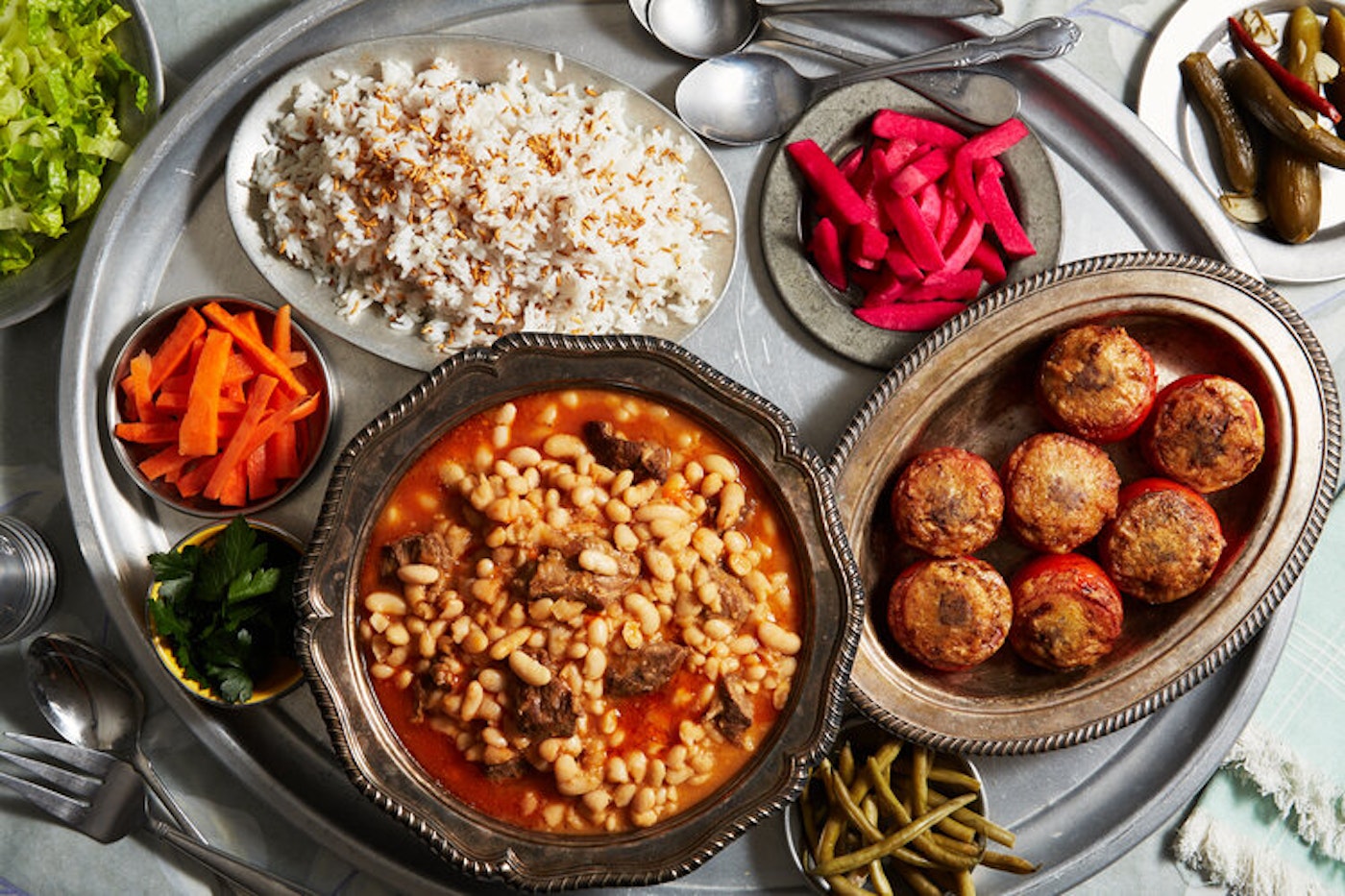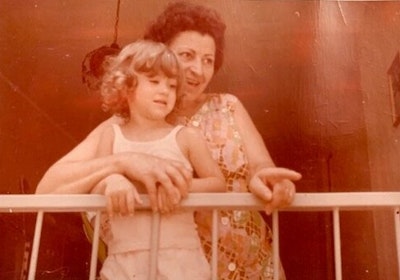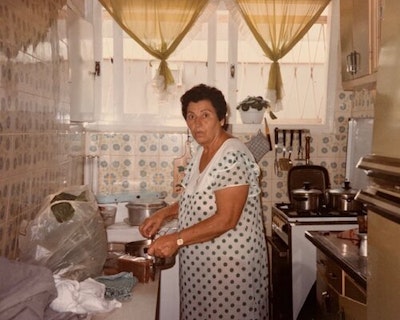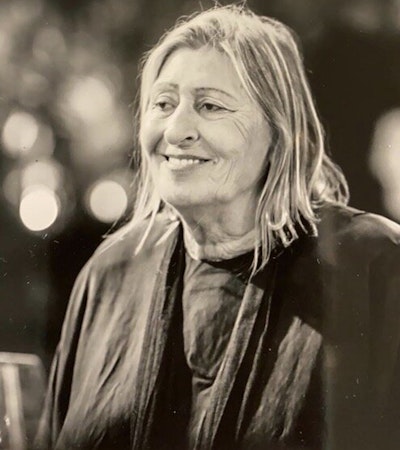Shared by Levana Lowenstein and the Daniel family
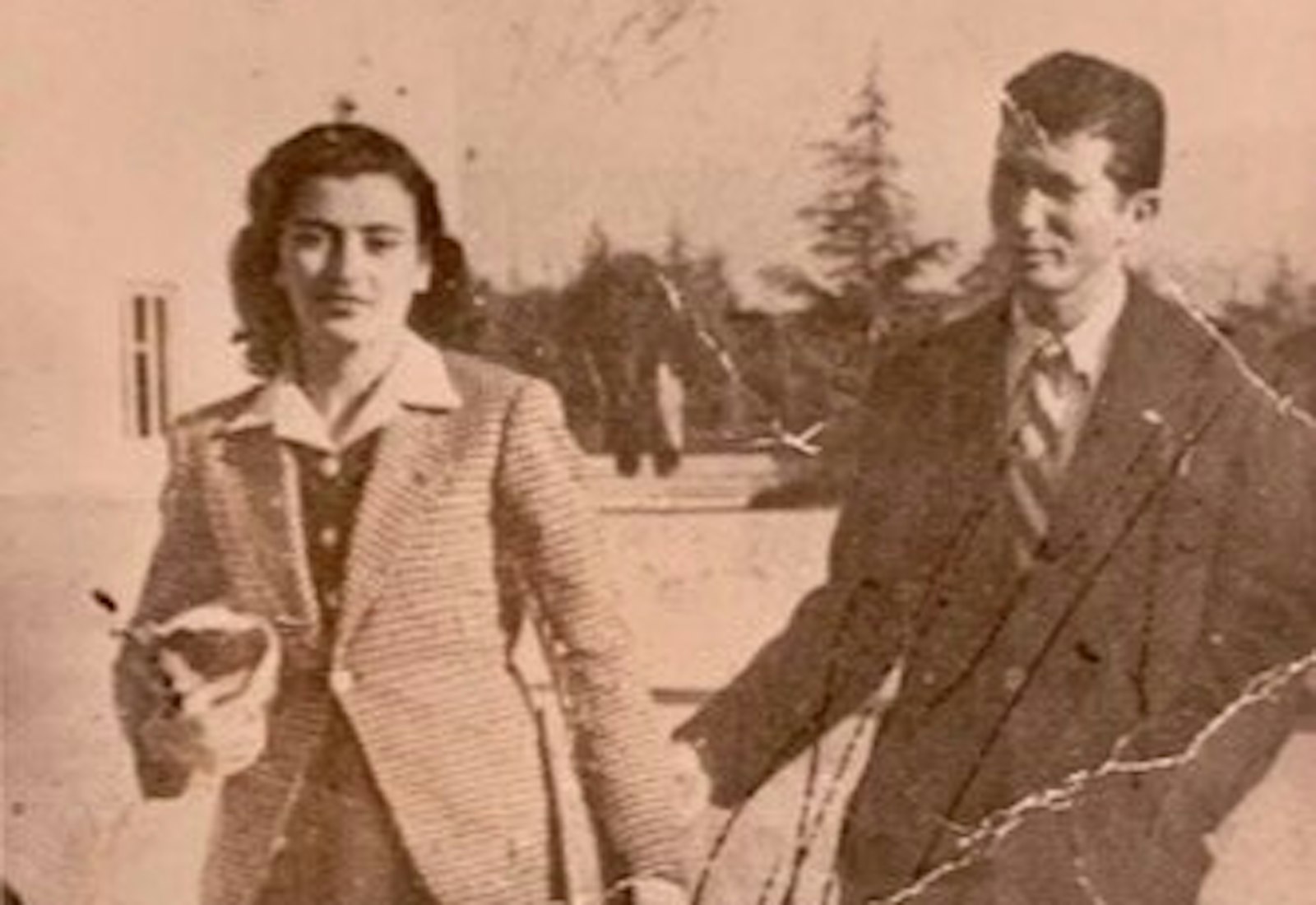

On Fridays in Levana Lowenstein’s home, there’s always a pot of avikas, a simple stew of beef, white kidney beans, onion, and tomato paste, simmering away on the stove. Often, her grandchildren come over after school for a bowl of it. They are the latest generation of many in Levana’s family to eat this Friday stew. It’s not only Levana’s family that serves this stew for a pre-Shabbat lunch. It’s a custom, she says, among families with roots in Izmir, a city along Turkey’s Aegean coast.
Levana’s father Nissim Daniel worked in construction in Izmir’s port and as a dried fruit dealer. But, in 1949, before Levana was born, her parents and sister Esther, who is known as Etti, moved to Israel. When they arrived in Israel, a driver was supposed to take them to what is now Herzliya, 20 minutes north of Tel Aviv. Having heard of an enclave of Jews from their community, Levana’s mother Ana asked the driver to take the family there instead. They arrived in Yehud, a small city near the airport that was and still is a Turkish community.
Here, Turkish recipes and traditions were preserved. “If we have 200 families in Yehud, all of them on Friday...eat the soup with beans, meat, and rice. This is our tradition,” Levana explains. In other ways, the community assimilated. In 1951, when Levana was born, she was given the Ladino name Luna, but the family changed it to Levana as David Ben Gurion encouraged immigrants to the early state to adopt Hebrew names.
Growing up in Yehud, Levana and Etti’s family lived around a patio with three other families. The women of each family would gather here to cook and gossip as they passed the time making recipes like bourekas boyos, a savory pastry filled with spinach and cheese or potatoes that’s served for Shabbat breakfast.
The foods of this community are unique and shared across households. The women from the patio also made tomates reinados, or “royal tomatoes” in Ladino, a recipe for tomatoes stuffed with ground meat. Another staple is sofrito, which in this community is a catch all term for a dish made with one meat and one vegetable like chicken and cauliflower or lamb with fried potatoes.
Levana saw all of this cooking, but says: “I never came to the kitchen to help my mom.” Still, she absorbed the images of her mother and grandmother Anna cooking. When she married and had children of her own, she started to cook and developed an intense passion for the kitchen. While she never learned the Izmir recipes from the family matriarchs, she realized she could close her eyes and picture them in the kitchen, remembering how they prepared dishes. “I remember everything,” she says.
She’s held on to that and passed it down. “My mother came from Izmir and she cooked like her mother cooked...like I cook,” Levana adds. She has made only small adjustments in the tradition, like saving the boyos style of bourekas for special occasions and holidays.
During the rest of the year, she uses two riffs on a simpler dough to make cookies called biscocho and borekitas, small hand pies filled with eggplant or potato and cheese. She serves the borekitas for Shabbat breakfast alongside long cooked brown eggs, yogurt, and rice pudding. One of her granddaughters, Noa, who is 11-years-old, has learned to make the recipe as well, ensuring the dish is passed down to the next generation.
Neither Levana’s grandmother nor mother is still alive, but both have a presence in her kitchen. There’s a large photo of Levana’s grandmother in her kitchen. As if the picture were a person, Levana says: “I ask her questions once in a while.”
